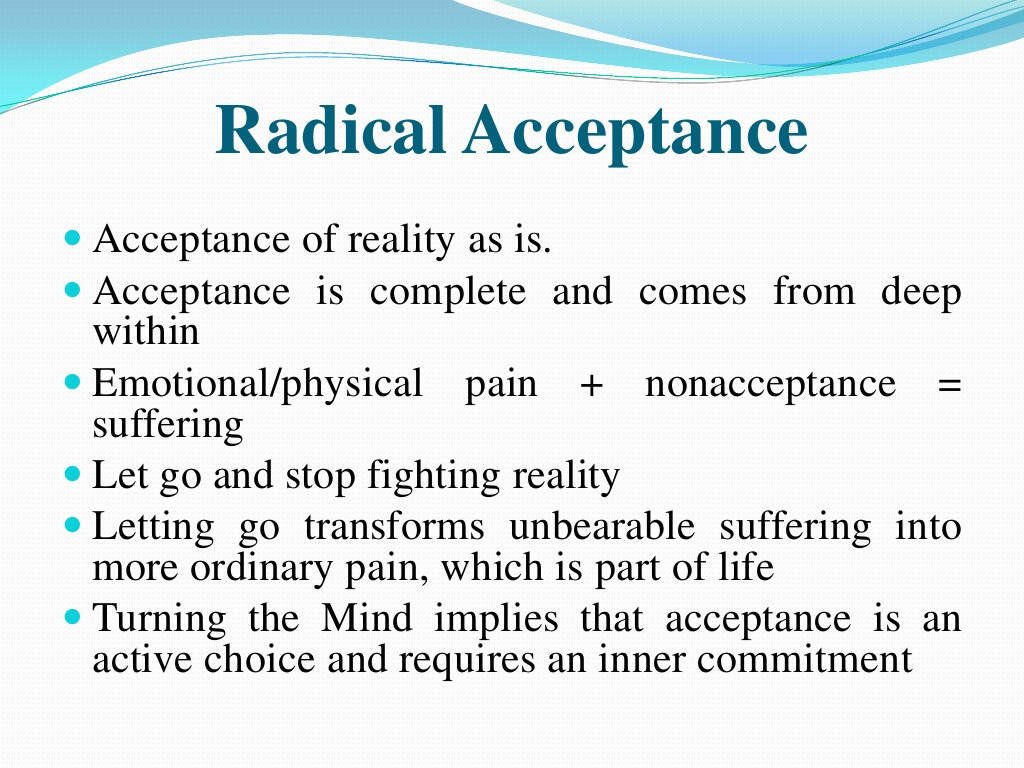

You can also do something to bring about positive change for you or someone else, like volunteering for a cause you believe in or adopting a pet. If the change you’re experiencing is causing stress, practice yoga or meditation to combat this. This could be that you have a chance to change careers after losing your job, or that your family comes closer together after mourning the death of a relative.

Try to find something positive about your new situation to help you move forward. 1.4K Share 129K views 3 years ago For Providers: Evidence Based Therapies Acceptance Commitment Therapy, or ACT, includes mindfulness activities such as meditation, breathing exercises, and. For example, take time to grieve if you’ve lost a loved one or feel disappointed if you’ve lost your job. Express the feelings you have about the change in a healthy way, since bottling up your emotions won’t help you move on. Then, as your list continues, try to notice smaller things, such as a beautiful sunset, a good cup of coffee, or chatting on the phone with a friend.ĭealing with change can be tough, but accepting that it’s a normal part of life can help you grow as a person and get used to new things that happen. You can start by listing basic things like a place to sleep, food to eat, a warm shower, friends, family, etc.

For example, you can use these techniques: It is easy to get overwhelmed by change and let it take control of your emotions, but you can get into a more positive mindset if you take some time to put things into perspective for yourself.


 0 kommentar(er)
0 kommentar(er)
